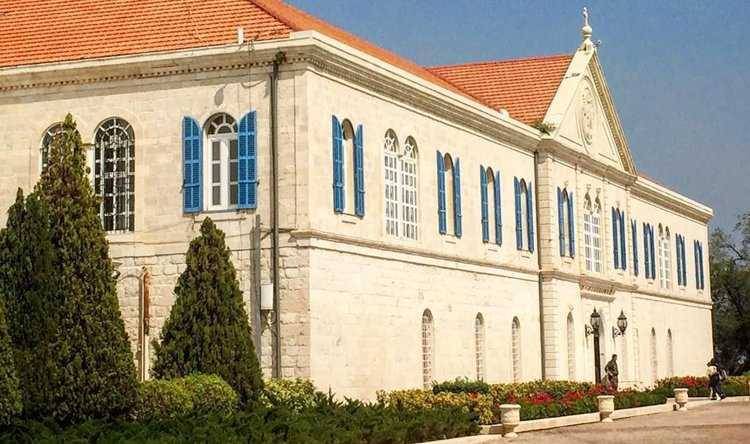Ahead of the parliamentary session on the "billion-dollar bribe" scheduled for the middle of this month, the pace of opposition to the exchange of Lebanon for the presence of hundreds of thousands of illegal Syrian refugees on its territory has intensified. The Church is at the forefront of these stances in a meeting it is hosting this afternoon. According to information from "Nidaa al-Watan," the meeting held at Bkerke follows the strong position taken by Maronite Patriarch Bechara Boutros al-Rahi during the funeral of the Lebanese Forces coordinator in Jbeil, Pascal Sleiman, and the recent statement from the Maronite Bishops' Council warning of the dangers of displacement.
The patriarch will preside over the meeting, which includes several insiders on the displacement issue, specialists, and some relevant ministers. The Bkerke meeting is expected to elevate the status of the issue of illegal Syrian displacement to an existential threat level. It will address the depth of the problem and proposed solutions. The focus will be on the comprehensive nature of the issue, extending beyond the Christian community, as well as the state's role and relevant ministries, stressing that the state cannot resign from this file.
In addition to the practical steps that need to be taken, Bkerke will take a definitive stance on the responsibility falling on individuals, municipalities, and ministries, rejecting the offered billion euro bribe from Europe, criticizing the European role, calling for aid to be provided within Syria, and raising questions regarding the role of the UN High Commissioner for Refugees and violations of Lebanese sovereignty and general laws.
In parallel, "Nidaa al-Watan" has learned that despite Qatar's engagement with initiatives and proposals regarding the Gaza sector, the Qatari officials tasked with the Lebanese file have begun preparations to welcome Lebanese political and parliamentary leaders, who have previously received invitations to visit Doha. A well-informed source clarified that we may witness the beginning of these visits by the end of this week, affirming that those welcomed in Doha will represent various political orientations, with discussions focusing on three main themes: the future situation in southern Lebanon, the presidential file in light of the intensive meetings held by the ambassadors of the Quintet, and the issue of Syrian displacement.




